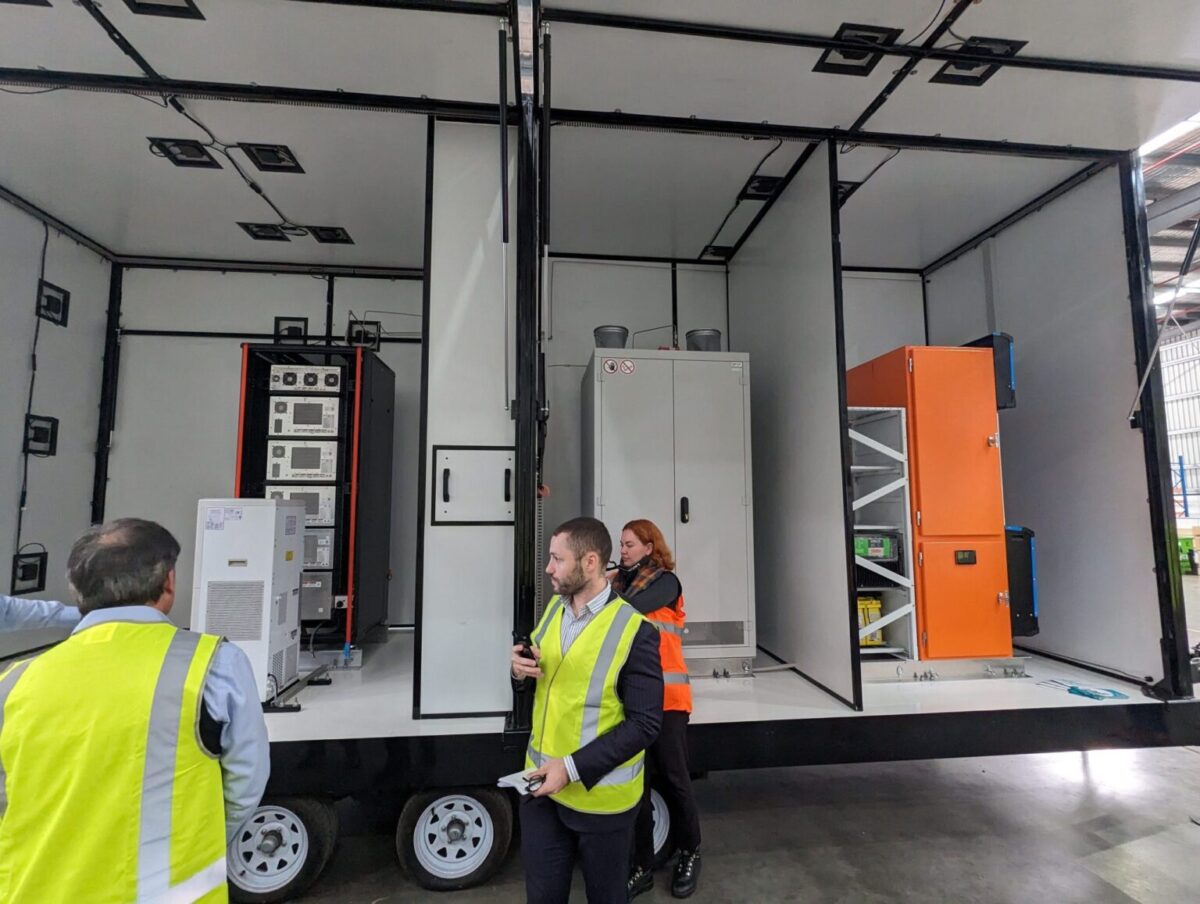H2PowerBox has launched its eponymous integrated solar-hydrogen energy system that generates and stores hydrogen through electrolysis during the day and uses a fuel cell to convert it back to electricity when needed, providing an alternative to mobile diesel generators in off-grid scenarios.
The trailer-mounted system is equipped with solar panels, a high-performance electrolyzer and a fuel cell. An integrated intelligent energy management system allows for efficient management of the entire process from solar energy capture to hydrogen production.
The H2PowerBox project is a collaborative effort involving the Clayton Hydrogen Technology Cluster (Clayton H2), Deloitte’s Emissions Solutions, and Victorian-headquartered GreenRen Power, the renewable energy offshoot of Australian telecommunications group CoverTel. Electrical infrastructure manufacturer Decon Corporation will build the H2PowerBox’s trailer and complete parts of its assembly at its Melbourne facility.
The H2PowerBox has a peak output of 10kW but has been designed for scalability with multiple units able to be combined to meet larger power requirements. “Due to the modular design of each of the integrated components within the H2PowerBox, the solution can be customized to align with your energy requirements,” the project partners said. “The H2PowerBox stands out as the market’s most versatile and portable hydrogen solution, seamlessly integrating power, storage, and generation into a single system.”
Popular content
H2PowerBox said the system, able to meet both baseload and backup power needs, offers a viable and eco-friendly power solution for remote areas traditionally dependent on diesel generators for continuous and backup power.
GreenRen Managing Director John Iacovangelo said the solar-hydrogen power solution represents the culmination of more than two years of intensive research and development. “The H2PowerBox is more than an alternative to diesel, it is a forward leap towards sustainable, self-sufficient power generation,” he said.
The H2PowerBox will be trialled at various client locations throughout 2024 with the developers aiming for full-scale commercial production in 2025.
This content is protected by copyright and may not be reused. If you want to cooperate with us and would like to reuse some of our content, please contact: editors@pv-magazine.com.



By submitting this form you agree to pv magazine using your data for the purposes of publishing your comment.
Your personal data will only be disclosed or otherwise transmitted to third parties for the purposes of spam filtering or if this is necessary for technical maintenance of the website. Any other transfer to third parties will not take place unless this is justified on the basis of applicable data protection regulations or if pv magazine is legally obliged to do so.
You may revoke this consent at any time with effect for the future, in which case your personal data will be deleted immediately. Otherwise, your data will be deleted if pv magazine has processed your request or the purpose of data storage is fulfilled.
Further information on data privacy can be found in our Data Protection Policy.